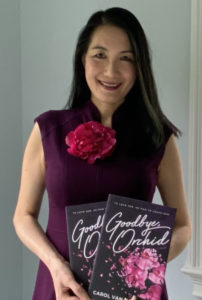You’ve finished your manuscript, congratulations! Now what?
After all these months or years spent on your book, you’re fairly close to the material and it can be hard to objectively assess your own work. So, it’s time for others’ feedback.
TIME FOR FEEDBACK
Feedback will help you make the book the best it can be. Just like you’d want feedback on your schoolwork or at your job, feedback on your writing is an important step.
SHOULD YOU ASK FAMILY?
Your mind might jump to the idea of asking your spouse, best friend, or family members. After all, you have access to these people.
This can sometimes work, however, be mindful that:
- They care about their relationship with you and may be hesitant to provide critical comments
- They may not be your target reader and therefore may comment on aspects that wouldn’t be an issue for readers in your genre
The most objective sources for feedback will come from a combination of editing professionals and beta readers.
This article won’t go into details on hiring editing professionals like developmental and copy-line editors. It also won’t cover how to find and work with sensitivity readers. Just know that all of these roles can be really important to the quality of your work. The key is to find professionals that you work well with.
Rather, this article will address a question that a pre-published author asked me: “How do I find beta readers?”
WHAT ARE BETA READERS?
First, what are beta readers? Beta readers are people who read your manuscript before it goes to the printer for publication. The term comes from information technology, where beta testing is used to find and eliminate problems before launching new computer programs.
Beta readers are different than publishing industry professionals whom you’d hire. They’re “ordinary” readers who can point out places where your story is confusing, where the continuity is awry, where plot points are missing or where there are factual errors. Remember though, that it’s unlikely for any single person to find all of these things, so be grateful for any issues a reader finds but don’t expect one person to find them all.
WHEN TO USE BETA READERS
For me, I find beta readers helpful at several stages. Having one or two trusted readers look at an early manuscript can help iron out big issues like plot holes, unlikable characters or action-reactions that don’t make sense. However, they will have to understand that the manuscript may be messy. You may need to get them in the right mindset to overlook any typos or grammatical issues and ask them to focus on the big picture.
Secondly, I appreciate having beta readers after developmental editing and after copy-line edits. The beauty of great beta readers is getting fresh sets of eyes on the work, since you’ll be very close to the material after having been through multiple rounds of edits.
By the way, it’s also validating to hear when readers enjoy the story. Don’t underestimate the joy of getting positive feedback!
HOW TO BRIEF BETA READERS
One key to helpful feedback is to specify what input you want. Your questions may differ at different stages of the editing process. To get honest input, make clear that your feelings won’t be hurt by critical comments. Critique is what you need to make the work stronger!
Here’s are some sample questions you could ask beta readers. Use these as thought starters and customize for your own need:
- How early in the story did you feel a connection with a character?
- Which parts, if any, made you feel bored and want to stop reading?
- Which parts evoked emotion for you?
- Did anything confuse you? What needs to be clarified? Please highlight the confusing sections.
- Any scenes that feel authentic emotionally?
- Any parts where the person’s actions didn’t make sense?
- Which character(s) were your favorite? Why?
- Which character(s) did you not like? Why?
- Did any scene, dialog, or event seem awkward? Perhaps a character does or says something that does not fit with his/her personality.
- What emotion(s) were you left with at the end? Were you satisfied with the way the story ended?
You can personalize your questions to hone in on a specific area where you think there may be issues, or where you’d like your readers to focus.
WHAT TO DO WITH THE FEEDBACK
When you get feedback from beta readers, it can be fraught with tension, like the experience of getting feedback from your editors. Some of it may be hard to hear, or you may not agree with the input. Of course, the book is yours, so whether you accept or make changes is ultimately up to you. However, you’ve asked for the input for a reason so you should read through every comment, consider its validity, and make a judgment call whether you’d like to make edits as a result of the feedback.
It’s helpful to get feedback from several sources, so that you can look for patterns or themes. In addition, it can be the case that readers can identify where the issues are, but the solutions they offer may not be relevant, so make sure you’re differentiating between the two.
As you work with your beta readers, you’ll get to know what different individuals focus on. Some readers comment on the big picture. You may want to save these readers for your early drafts. Some readers notice when the physical actions don’t make sense, for instance, if the characters had moved to another room without noting their travel to a new place. Other readers notice emotional inconsistencies. (When you trust someone’s judgment on your character’s emotional journey, that beta reader is worth their weight in gold!) Still others are more focused on the details of punctuation and verb tense. This can be helpful for your final proofreading steps.
WHERE TO FIND BETA READERS
Let’s get to my friend’s question – where do you find beta readers?
First, you can leverage your network. Swap manuscripts with other writers who read in your genre. Ask your local librarian to introduce you to avid readers. Seek out book club members. Post requests on social media. Some people love to give input on early work!
Over time, you’ll learn who you enjoy working with, who provides valuable feedback, and who you’d like to return to again and again. You’ll likely also want to replenish your pool of beta readers over time, as fresh perspectives can be helpful.
There are also matching services for finding beta readers online. Some sites that author friends and editor John Matthew Fox have mentioned include:
- Critiquematch.com (you can swap critiques or pay for one)
- Critiquecircle.com (based on reciprocity, author members critique each other’s work. Free unless you want to upgrade to a paid model which unlocks more features)
- Betareader.io (there’s a free level that provides 3 readers to start, and then a paid Premium level with unlimited beta readers for $9.99/month)
- Heybeta.com ($7/month for 25 readers or $14/month for 100 readers)
I haven’t tried these yet but feel free to check them out and please thank or follow John @Bookfox for listing the last few on TikTok!
MOST IMPORTANTLY, EXPRESS GRATITUDE!
Beta readers are wonderful. They’ve spent a lot of time reading your manuscript, considering what feedback to give and how to provide it. They’re invested in your success. So make sure to express your gratitude!
This can start with a heartfelt note. Additional ways include:
- Recognize your early readers in your book acknowledgements
- Thank them on social media
- Provide ebooks, signed copies of your finished books, or other gifts
How you thank beta readers is an individual decision. The important thing is to express your sincere appreciation. They have earned it!

Carol Van Den Hende is the award-winning author of the Goodbye, Orchid series. She’s also a speaker, global marketer, digital strategist, Climate Reality Leader and Board Trustee. One secret to her good fortune? Her humorous husband and twins, who prove that love really does conquer all.
You can find her on her website or follow her on Twitter, and Facebook. Please sign up for Carol’s newsletter at https://carolvandenhende.com/contact or linktr.ee/cvdh.







